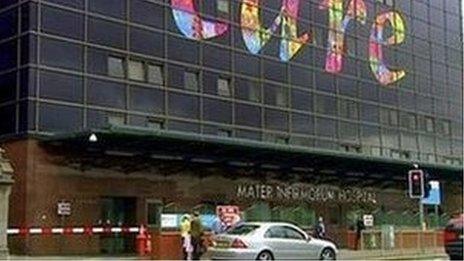Charity calls for regulation on sales of laxatives to children
- Published
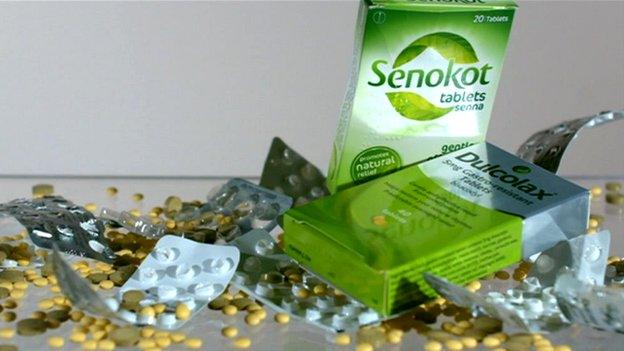
The UK's leading eating disorder charity has called for the sale of laxatives to children to be more strictly regulated.
Beat estimates 80% of those affected by eating disorders in the UK have misused laxatives in order to lose weight.
It says supermarkets have done nothing to restrict sales of the medicine to young people.
UK supermarkets say their sale of laxatives complies with regulation set by the medicines regulator, the MHRA.
Beat says eating disorders most commonly develop during adolescence.
Teens are turning to stimulant laxatives believing they can quickly lose weight, with some children known to be taking dozens of laxative pills on a daily basis, they say.
Medical professionals warn that laxative abuse can cause diarrhoea, dehydration and electrolyte imbalances that can lead to kidney failure.
It can also damage the liver and potentially damage the heart leading to heart failure and death.
Beat wants supermarkets and retailers to reduce the ease with which young people can buy laxatives in large quantities.
The charity is calling for a minimum purchase age of 16, the maximum pack size reduced to ten tablets, sales restricted to pharmacies and a warning label on packets that states "this is not a weight loss product".
Abusing laxatives
The Dulcolax and Senokot tablets currently have age restrictions on the packets.
Dulcolax states that the dosage instructions are for adults and children over 10, and children under 10 should consult a doctor before taking them.
The Senokot packet advises the dosage instructions are for adults and children over twelve, and that children 6 years and older should consult a doctor before taking them. They do not recommend the drug for children under 6.
Both and Dulcolax and Senokot say that they treat the issue of eating disorders very seriously and say they fully comply with all the legal requirements made by MHRA (Medicines and Healthcare products Regulatory Agency).
"We've seen a 30% increase in calls to our help lines over the last year where people have mentioned overusing laxatives in unhealthy way," Susan Ringwood, chief executive of Beat, told BBC Watchdog.
"And that does include a significant number of young people as well," she added.

Lottie Hall: "My body just got used to it... I could be taking 20 to 30 a day"
Lottie Hall is 17 years old. She started taking stimulant laxatives to help her lose weight when she was 13 and now has long term damage from laxative abuse.
"At first it would start with just a few, 4 or 5. Over time my body just got used to it and in the end I could be taking 20 to 30 a day to get them to have the desired effect.
"It was a long time, probably about 3 years before my parents found out and I started getting help for it.
"They'll be times where I'm out and all of a sudden it gets really uncomfortable and I have no control over it.
"I was a school once and I was in the corridor and was crouching down and holding my stomach in agony and my friend found me and she asked me what was wrong and I had to tell her and it was a really embarrassing situation.
"She actually had to tell my teacher and my teacher had to tell my mum."

In 2009 Beat warned Tesco, Sainsbury's, Morrisons and Asda that children were buying the medicine in large quantities. But the charity says nothing was done.
National Institute of Health and Clinical Excellence (NICE) says that 1.6 million people in the UK are affected by an eating disorder and according to research from Beat, 80% of those surveyed by the charity admitted that they had misused laxatives in order to lose weight.
Dr Babu Vadamalayan, a paediatrician and gastroenterologist at Kings and St Thomas Hospital, told BBC Watchdog that the eating disorder unit at Maudsley Hospital say they see 140 under 18s with eating disorders every year and 10-15% of them are abusing laxatives.
Sixty tablets
As part of an investigation, BBC Watchdog sent four 14-year-old actors into 25 branches of Tesco, Sainsbury's, Morrisons, Asda and Boots stores to purchase three boxes of stimulant laxatives.
The actors were not stopped or questioned by staff in any of the stores, despite buying a minimum of 60 tablets in each store.
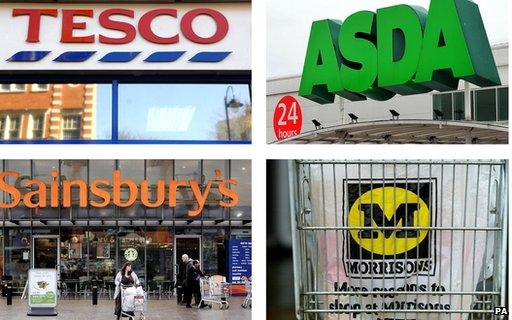
MHRA (Medicines and Healthcare products Regulatory Agency) recognise the concern.
The body says it has consulted independent experts and believes that restricting the sale of laxatives or reducing pack sizes would not be appropriate.
However, it adds that it is working with manufacturers to get stronger warnings printed on products and will monitor their safety and take further action if necessary.
Boots and the four supermarkets said that they fully comply with current government and MHRA regulations on selling laxatives.
Sainsbury's and Boots added that they are retraining their staff to better identify signs of laxative misuse.
You can see the full report on BBC Watchdog at 20:00 BST on Thursday 16 October.
- Published30 January 2014
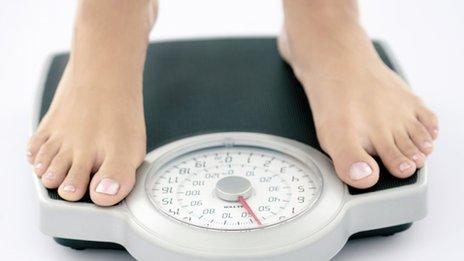
- Published30 January 2014
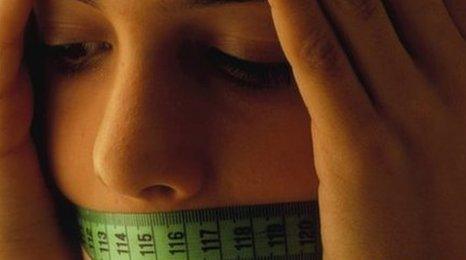
- Published12 March 2014
